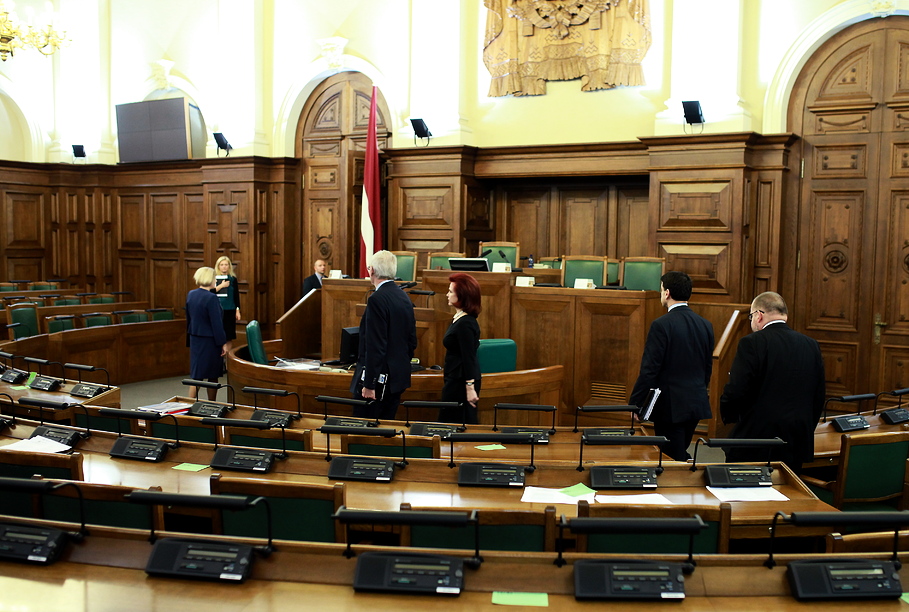In the traditional presidential address to the new Saeima, President Andris Berzins said lawmakers needed to remember their duty to represent the people who elected them.
"The mandate given by the voters is not only a great honor and trust, but also a responsibility: for each of your decisions and actions, for each vote and for each word. Today is the beginning of your great four-year examination, which will be judged by the strictest of juries - your voters!"
Berzins urged members of parliament to bear in mind a range of factors including a changed international situation, the need for a swift agreement on budget and spending plans and the fact that the country's reputation will be at stake when Latvia holds the rotating presidency of the EU during the first half of 2015.
He also noted that emigration remains "one of the biggest threats to the future of the Latvian state".
Perhaps a little weary of the lengthy horse-trading process of forming a new government and cabinet that has already dragged on for more than a month, Berzins also signalled that he wanted legislative changes to give more power to the executive.
"I invite the 12th Saeima during its operation to strengthen the executive branch, to make government more effective and efficient in order to finally fulfill article 55 of the Constitution, according to which which the Cabinet of Ministers consists of the Prime Minister and his chosen ministers."
Berzins also noted that the inclusion of a number of new deputies with experience in local government might improve cooperation between central and regional powers.



































